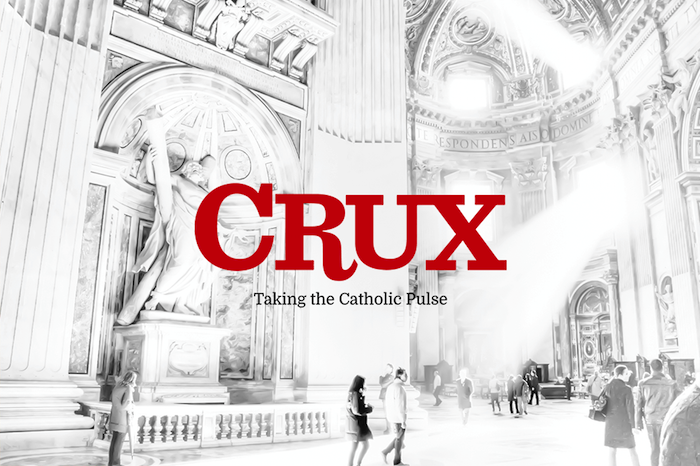
It’s been nearly a year since the Catholic news site Crux split off from The Boston Globe to go independent. The departure wasn’t by choice — the Globe shuttered Crux after being unable to find enough “big-ticket Catholic advertising” to sustain it — but it’s turned out well: The site is now pulling in about 1.5 million pageviews a month, roughly 20 percent higher than its traffic was at the Globe.
“I would say we’ve exceeded any reasonable expectation of what we might have accomplished,” said John L. Allen, Jr., the longtime reporter on the church, who secured a deal with the Catholic service organization Knights of Columbus last March to keep Crux up and running, and who now heads the site. (The Globe’s IT support was crucial to Crux’s transition success, he said: Migrating a site from one set of servers to another “is as if you spill cheese on an outdoor grill and it soaks down to every layer of the grill, and you have to go in with a spatula and physically scrape it all off. It’s a very complicated process.”)Crux’s higher traffic numbers are due in part to some very big news moments — Pope Francis’ Amoris laetitia, which seems to suggest that divorced and remarried Catholics can receive communion and which remains controversial; World Youth Day last July; and, of course, the U.S. presidential election. Crux will cover the Trump administration in a nonpartisan way, Allen said: “We don’t want to be seen as either the voice of Catholics who like Trump, or the voice of Catholics who don’t like Trump. We want to be the place where both of them get fair play.”
One of the most notorious fake news stories of the election cycle was the “news” that Pope Francis had endorsed Donald Trump, which went viral. I asked Allen if there’s something about this Pope, in particular, that is somehow conducive to fake news stories: No, he said, it goes with the terrain. “Pope Benedict, years ago, there were a lot of fake reports around him, too,” he said. “Same thing about John Paul when he did his interfaith summit in 1986: There were lots of urban legends that came out of that. There was a storyline about how one of the religious groups that was there had engaged in animal sacrifice in a Catholic church. It was completely fake, and it had to be debunked. It’s just that it wasn’t a global phenomenon, and people weren’t doing Facebook posts about it, and you didn’t have 24/7 cable news back then.”
Allen does, however, see Crux as a place where fake religious news (here’s another example) can be debunked. “Fake news on the Catholic beat is, in some ways, a Godsend to us,” he said. “We’re the place a lot of people come to get the real story. It’s another niche we’ve kind of occupied — a rumor watch, I guess.”
Crux’s revenue is now roughly one-third advertising and two-thirds sponsorship. The Knights of Columbus is still the site’s principal partner, but Crux has also added several dioceses to its list of sponsors, and it’s looking for more in 2017. The Knights have never tried to influence coverage “even when some of our editorial decisions have caused them heartbreak,” Allen said. “We carried some pieces that were very favorable to Pope Francis in his line on communion for divorced and remarried people. That very much irritated some members of the Knights of Columbus; other [stories] have irritated other members, but they have stood by us.” Crux’s advertising sales are “slightly” above the level they were at the Globe.Crux is now doing a radio show on the SiriusXM network, but Allen hopes to do more podcasts and video reporting this year, and he hopes that Crux — which recently hired an editorial assistant and is in the process of hiring a managing editor, bringing its team back to about the size it was at the Globe — can start breaking more news too. “We want to get back to what has always been one of Crux’s major areas of focus, which is anti-Christian persecution around the world,” he said. “We want to do more original reporting there, break more stories, and do more to make sure that story is on the map.”
Allen said he’s been surprised by how hard it is to lead a site — “the huge difference that exists between contributing to something and being in charge of something” — but it’s rewarding: “What’s happened to Crux demonstrates that it is possible to sustain a niche news platform with a kind of for-profit and nonprofit model,” he said. “Ad sales are a huge, absolutely indispensable element of our business model, but so is sponsorship. I think that’s the future of niche publications.”